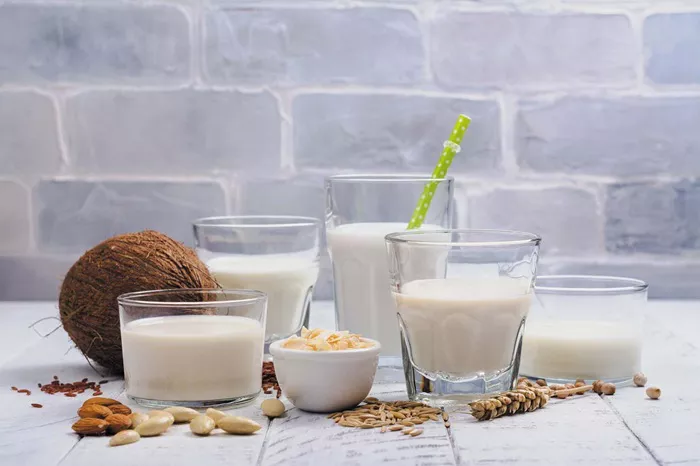Recent studies have explored the impact of both animal and plant-based milks on gut health, revealing that while both provide benefits, animal milk generally offers superior support for beneficial gut bacteria. This raises interesting considerations for individuals deciding between the two options in their diet.
Milk and Its Role in Gut Health
Milk has long been a cornerstone of human nutrition, particularly valued for its role in infancy, where it supplies essential nutrients like calcium, vitamins, and proteins. These components are known for their anti-inflammatory properties and their potential to prevent diseases like cardiovascular issues, osteoporosis, and diabetes. Despite its health benefits, milk consumption has declined in certain regions, largely due to factors like lactose intolerance, allergies, ethical concerns, and the growing popularity of plant-based milk alternatives.
These plant-based substitutes, made from ingredients such as soy, almonds, and oats, are often marketed as healthier and more sustainable. However, their impact on gut microbiota—a key factor in overall health—remains less well-studied, with varied results depending on the type of milk and individual health factors.
Gut microbiota plays a crucial role in immune function, metabolism, and even brain health. While animal milk, particularly cow milk, has been shown to support gut health through its proteins and fats, plant-based milks have also been found to foster beneficial bacteria. That said, some plant-based alternatives may, in rare instances, promote the growth of harmful bacteria.
Benefits of Animal-Based Milk
Animal-based milk, particularly from cows, goats, and camels, is considered a functional food due to its bioactive molecules like proteins, fats, and oligosaccharides. These components have been proven to offer a variety of gut health benefits.
Cow milk, for instance, promotes beneficial bacteria such as Lactobacillus and Bifidobacterium, while its proteins and lactose act as prebiotics that encourage healthy gut flora. Additionally, cow milk has been found to reduce harmful bacteria, such as Clostridium, and increase short-chain fatty acids (SCFAs), which boost immunity and gut function.
Mare milk, due to its similarities to human milk, is another option for individuals with allergies. It has been shown to support beneficial bacteria while being easier on the digestive system, especially for those with hyperlipidemia.
Goat milk contains oligosaccharides that act as prebiotics, enhancing gut barrier function and promoting the production of SCFAs. However, it has been associated with the promotion of Helicobacter, a bacterium linked to gastric problems in some cases.
Camel milk, rich in immunomodulatory proteins, has demonstrated a unique ability to increase beneficial bacteria while reducing harmful strains like Shigella and Escherichia. Its ability to increase SCFA production further contributes to its positive effects on both gut health and immune responses.
The Role of Plant-Based Dairy Alternatives
With increasing global interest in plant-based diets, alternatives like soy, almond, and oat milk have become popular due to their perceived health and environmental benefits. Typically lower in protein and fat, these milk alternatives are often high in unsaturated fats and carbohydrates and contain no lactose or cholesterol, making them a suitable option for individuals with lactose intolerance or milk protein allergies.
Plant-based milks are also rich in antioxidants and phytosterols, which reduce oxidative stress in the body. Soy milk, in particular, has been shown to promote beneficial bacteria while reducing harmful strains like Proteobacteria. However, some plant-based alternatives have been associated with encouraging the growth of bacteria such as Fusobacterium and Salmonella, though these are generally found in low, manageable levels.
Conclusion
The consumption of plant-based milk substitutes is rising, especially in Europe, due to their health benefits and environmental sustainability. Although these beverages can replicate some of the nutrients found in animal milk, notable differences in protein and fat content remain. For instance, while plant-based milks are suitable for those with lactose intolerance or cholesterol concerns, their effects on gut microbiota are still under study.
Both animal and plant-based milks can positively impact gut health, but their effects vary. Animal milk generally offers greater overall benefits, particularly for promoting beneficial bacteria and reducing harmful strains. However, plant-based alternatives still contribute positively to gut health, especially for those with specific dietary restrictions.
Ultimately, individual preferences, nutritional needs, and gut microbiota responses will guide personal choices. As research progresses, clearer recommendations for dietary choices may emerge to help individuals tailor their milk consumption to their health requirements.
[inline_related_posts title=”You Might Be Interested In” title_align=”left” style=”list” number=”6″ align=”none” ids=”12417,12386,12382″ by=”categories” orderby=”rand” order=”DESC” hide_thumb=”no” thumb_right=”no” views=”no” date=”yes” grid_columns=”2″ post_type=”” tax=””]


































